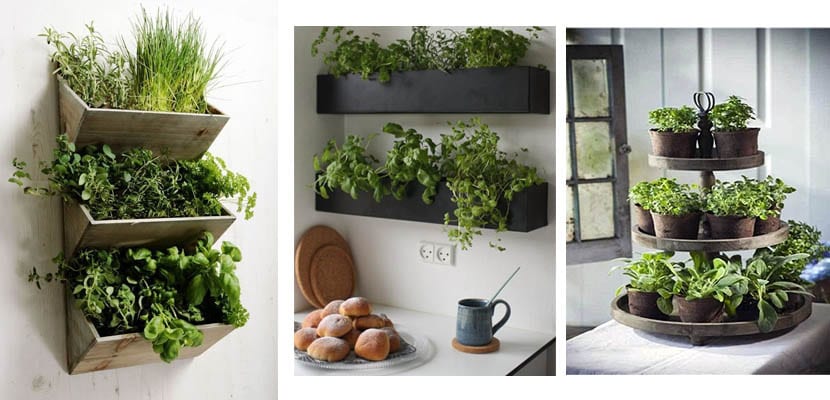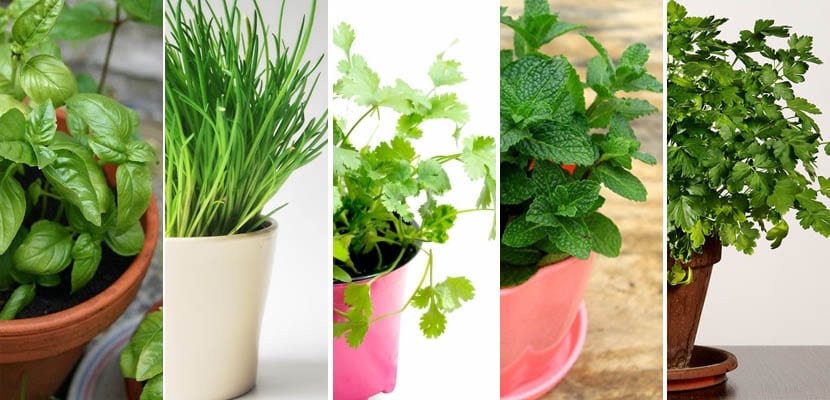
Should we give up cultivating aromatic plants if we do not have an outdoor space? Is it possible to grow them inside our home? There are certain aromatic plants that are well adapted to indoor cultivation as long as we provide them with at least 4 hours of direct light.
Most aromatics do not survive on less than 4 hours of light direct so if your idea is to create a small garden, you will have to install it in a place where this and other requirements are covered. You got it? Then we give you the keys to create it successfully.
There are aromatic plants that are less demanding in terms of light and these are precisely the ones that we can grow indoors. We are talking about basil, chives, coriander, mint and parsley. Five plants that will allow you to season and make your dishes more tasty without leaving home.
Where to place the aromatic garden?
The limitation of space is not a problem to install an aromatic orchard. Today, a small corner of the house can become the perfect place to grow these plants thanks to the vertical solutions: vertical gardens, hanging planters, shelves ...
Finding a space to create an urban garden is not a problem but it is looking for one that meets the conditions for the plants to develop properly. And what are those conditions? The first and most important, without a doubt, hours of light.
As we have already told you, aromatic plants require a minimum of four hours a day of direct light. Find the place with the most light in the house, windows facing southeast or southwest that do not have a radiator nearby and install your garden near them. If it is not possible and you do not meet the minimum hours, you will have to complement the natural light with a few hours of artificial light.
Aromatic plants to grow indoors
Are all the aromatic plants that we propose to you just as easy to grow? Not at all. Your requirements regarding light, temperature and humidity They are different and therefore some can be better in some places than in others. But don't stop trying; the benefits are worth it.
- Basil. It is the most difficult to grow indoors due to its demand for light. It needs 6 hours of light but you will have to move it a few inches away from the window if you do not want it to freeze in winter or burn in summer. Basil hates extreme temperatures, although there are varieties that are much more tolerant of these than others. If you find the right place and get it to grow properly, you can use it in herbal teas, salads, pasta dishes or to prepare pesto.
- Chives. One of the best suited to the interior; the least demanding in terms of daylight hours. It will grow quickly and you can use it in salads and other dishes that you want to benefit from its mild and spicy flavor. To collect it, you will only have to cut the leaves flush with the substrate when you need them.
- Cilantro. Coriander needs four hours of light, a stable temperature, good drainage, and humidity for good growth. You should also know that when conditions are not entirely favorable it begins to bloom and at that moment it no longer tastes good.
- Mint. Mint grows very expansive, so it needs to be planted in individual pots. It is a plant that needs 4 hours of sun exposure but that accepts some shade, which makes it grow happily indoors. Make sure it has good drainage and water it regularly, especially during the growing season (spring and summer). Use it in desserts and drinks and to flavor oils.
- Parsley. Although its growth is slow in its first weeks, once established the plant is very productive. It is not very demanding in terms of care but it does need frequent watering but in small quantities, to ensure constant humidity. You will use it every day when you have it on hand.


